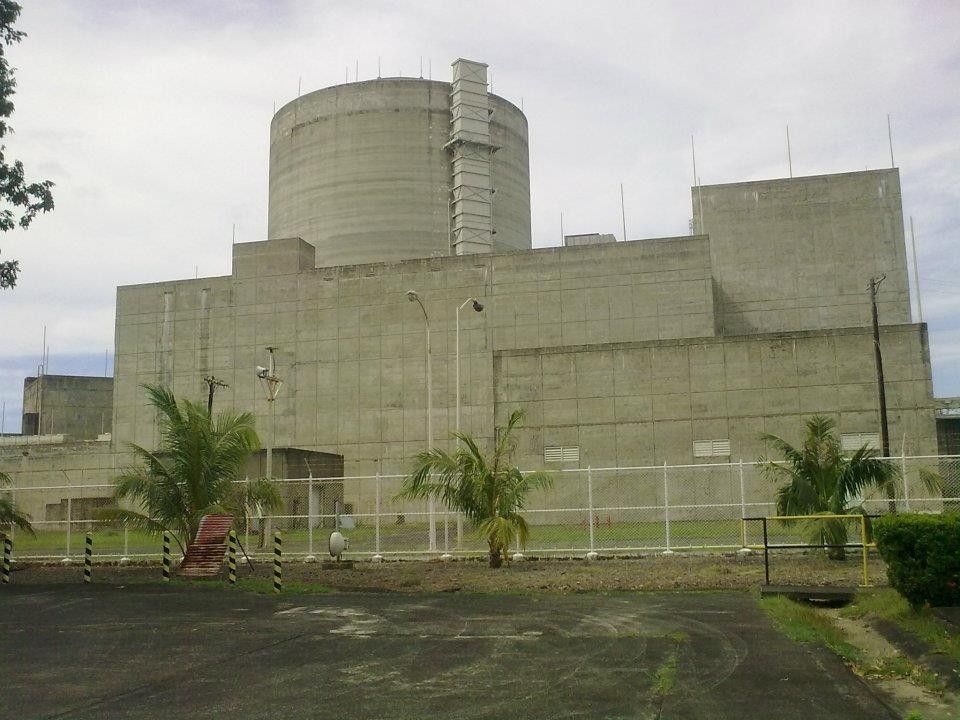Nuclear power not what grid needs, former Marcos energy official says in bid for renewables

MANILA, Philippines — An energy expert who once served in the Marcos government urged the administration of Ferdinand "Bongbong" Marcos Jr. to consider developing renewable energy as talk of reviving the mothballed Bataan Nuclear Power Plant and of developing nuclear power has cropped up again as it has whenever the Philippines elects a new president.
President Rodrigo Duterte and top vote-getter Marcos, Jr. manifested their support for nuclear power.
"It's not flexible. It is the most inflexible, the most rigid type of power plant. To build a nuclear power plant, we operate it at its capacity and you don't ramp it up [and] you don't ramp it down. I think I've said before that that's not what our grid needs," Alberto Dalusung III, the energy transition adviser of Manila-based policy group Institute for Climate and Sustainable Cities (ICSC), told ANC in an interview on Tuesday.
"What our grid needs is [a] more distributed...flexible generation, and I think that a lot of other options are available to the Philippines today," he added, referring to solar and wind, which are classified as renewables.
ICSC says renewables are considered flexible power plants that have the ability to adjust to different levels of load, unlike baseload plants like nuclear and coal.
Dalusung's remarks echo ICSC Executive Director Red Constantino's stand on nuclear power. Constantino earlier told Philstar.com that nuclear power is "completely unfit to respond to the country's load profile" and that it is worse than coal in terms of energy security and self-sufficiency.
Dalusung, who worked in the Ministry of Energy for four years during the administration of the presumptive president-elect's father and namesake, said that the government at that time was also working to develop geothermal and hydropower projects.
According to him, it would be more prudent to pour resources into other sustainable sources of energy instead of reviving the BNPP.
"Nuclear...is a resource that takes time to develop. What we need in the Philippines is an additional quick infusion of new capacity...and you do that by other sources [like] solar, wind and geothermal," he said.
RELATED: US to help Philippines develop nuclear power program; groups push renewable energy instead
Marcos Jr. open to nuclear energy
Marcos Jr., who has gained a wide lead in the 2022 presidential polls, earlier said that he is open to reviving the BNPP, which cost $2.2-billion to build but has never been used.
Environment group Greenpeace Philippines, has long been speaking out against the possibility of nuclear in the country, saying that this will "burden Filipino consumers economically and expose the country to health hazards, contamination and disaster risks."
Local think tank Center for Energy, Ecology and Development earlier told Philstar.com in an interview in March that global prices of plutonium and uranium are likely to rise, so it is not wise for the energy industry to turn to these when the country has an abundant supply of renewable energy waiting to be tapped.
Plutonium and uranium, used as fuel for nuclear energy, are not available in the Philippines, and will need to be sourced abroad.
Duterte has said the next administration should consider nuclear energy as oil resources are not endless, but stressed the potential risks it may bring.
"Nuclear is forever, kaya lang medyo delikado 'to. You know kagaya ng nangyari sa Chernobyl sa Ukraine, nagkaroon ng leak. (But it is quite dangerous. You know what happened to the Chernobyl [nuclear power plant] in Ukraine when it leaked)," he said in a Cabinet meeting that aired on Monday evening.
Earlier this year, Duterte signed an executive order which requires the government to work towards introducing nuclear into the country's energy mix and develop a nuclear program for it.
The EO also assigned the state's nuclear inter-agency committee to study the possible use of the BNPP.
READ: IN PHOTOS: Inside the $2.2-billion Bataan Nuclear Power Plant in 2022
The elder Marcos admitted that the BNPP "is not safe", and that it poses "a potential hazard to the health and safety of the public", citing the findings of the Commission on Nuclear Reactor Plants, according to a letter of instruction he signed in 1979.
"It will not be possible to continue with the construction of the Bataan Nuclear Plant unless the contractor, Westinghouse, introduces fundamental changes in design and adapts additional, adequate and acceptable safeguards to ensure its safety and protect the health of the public," the elder Marcos said then. — Angelica Y. Yang
- Latest
- Trending






























